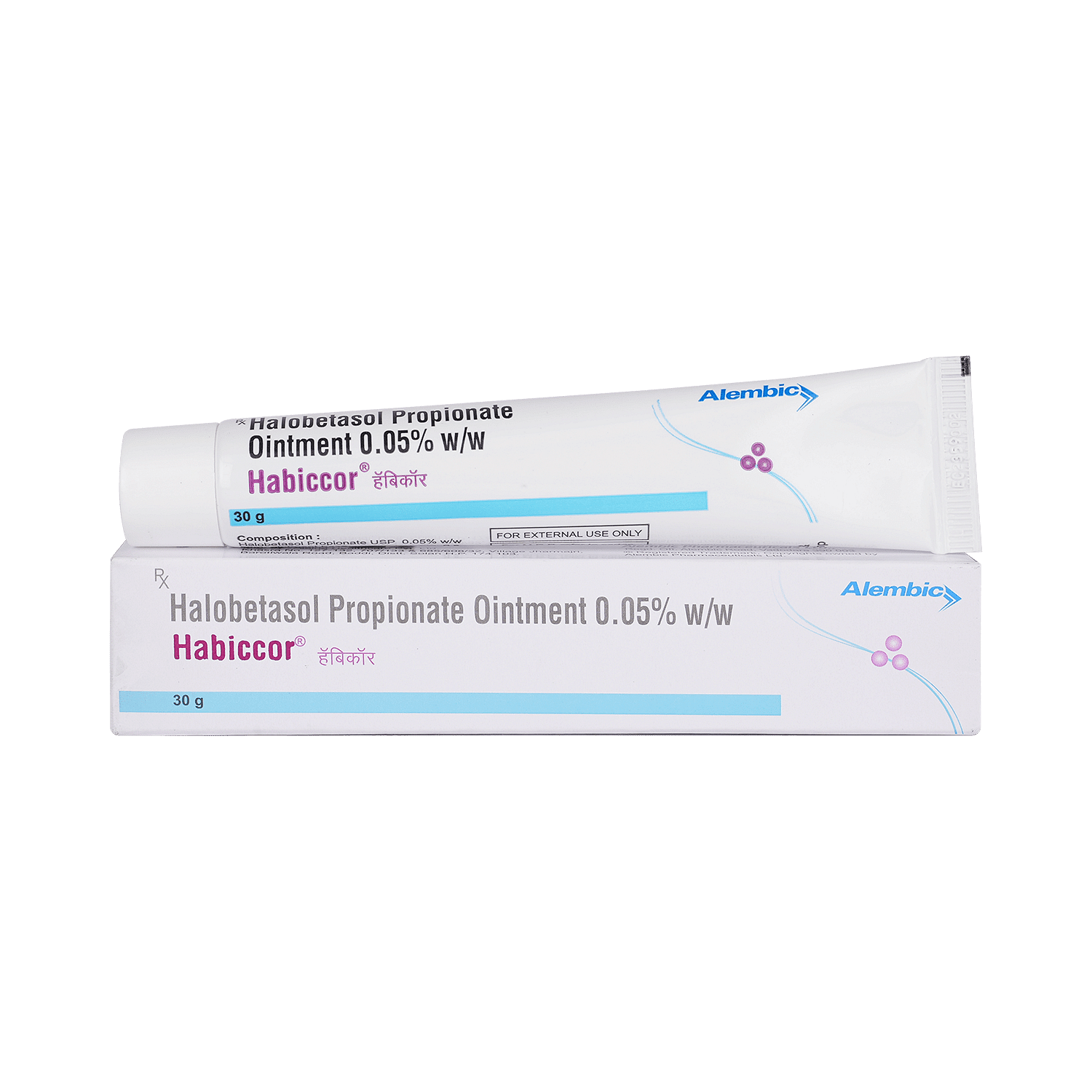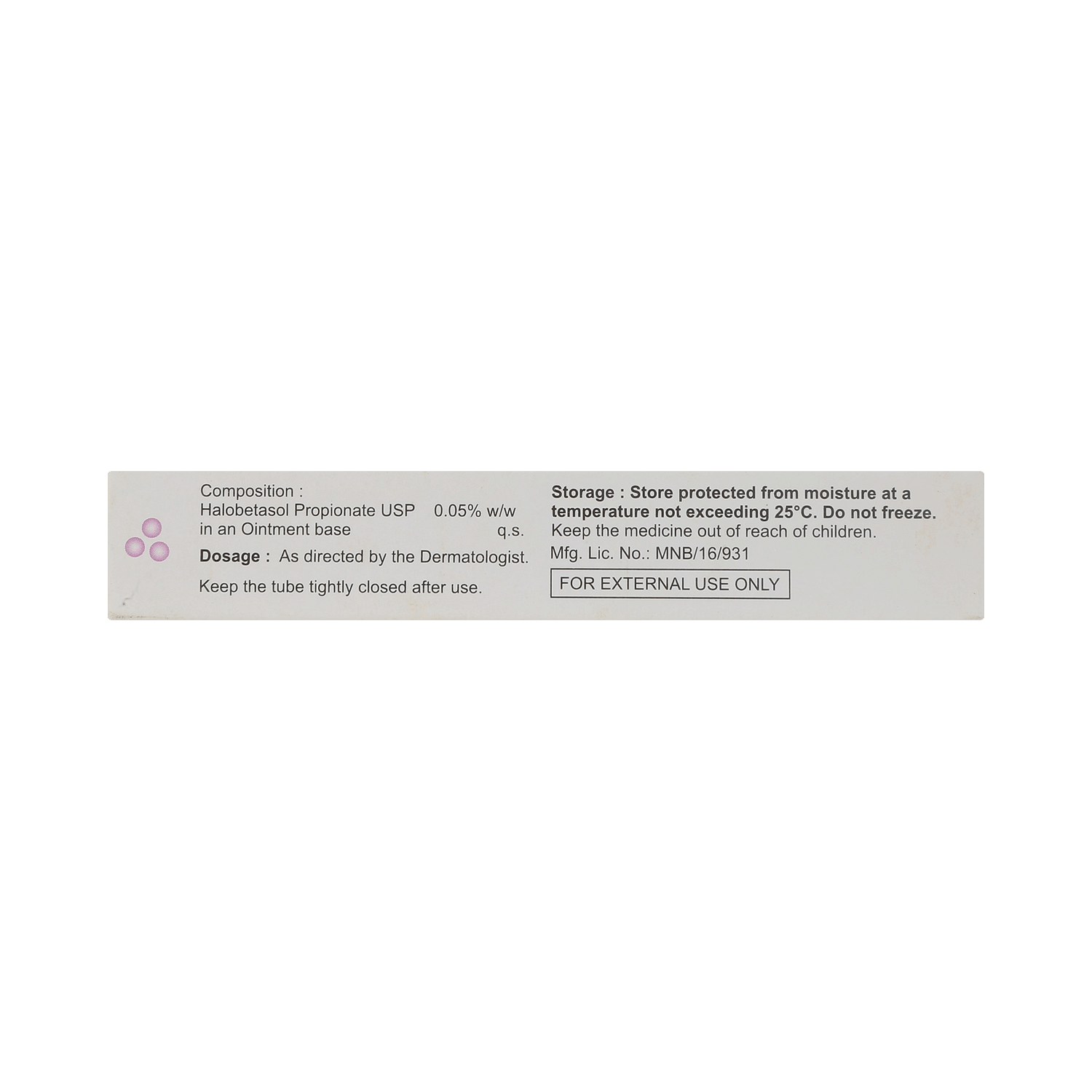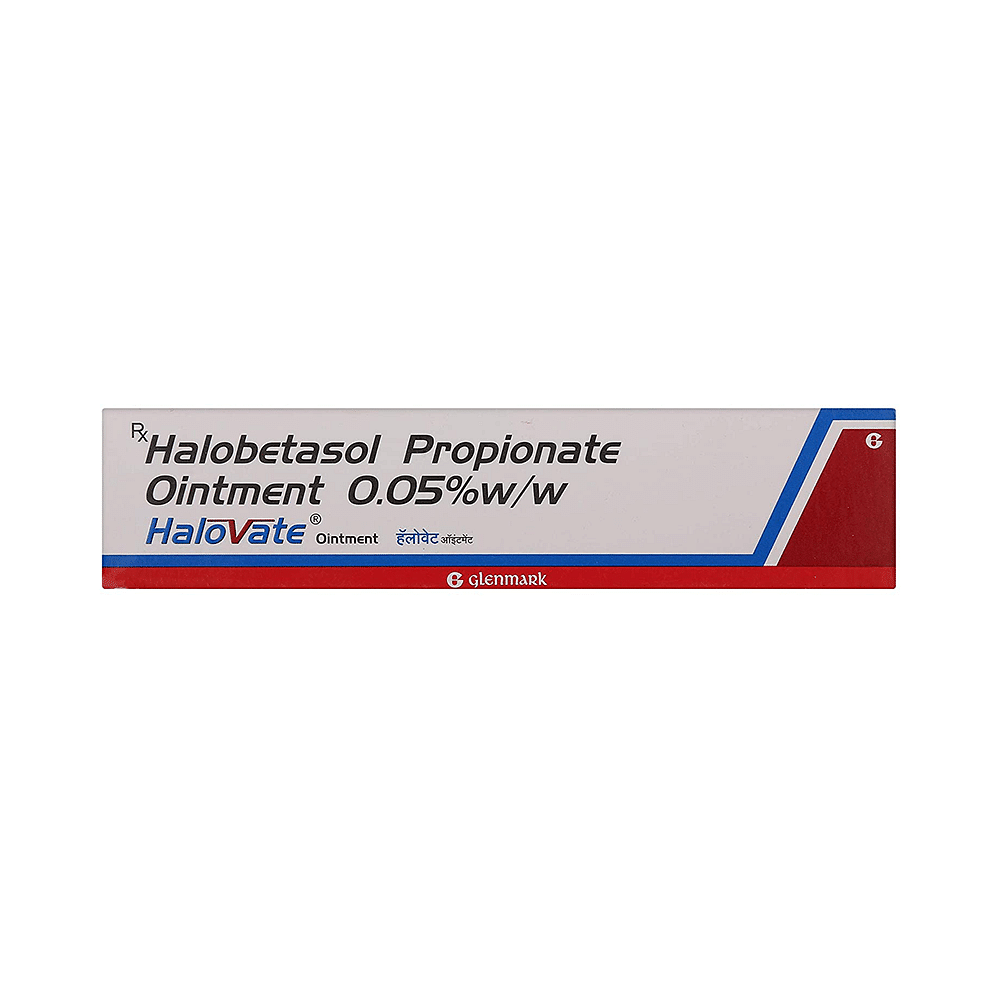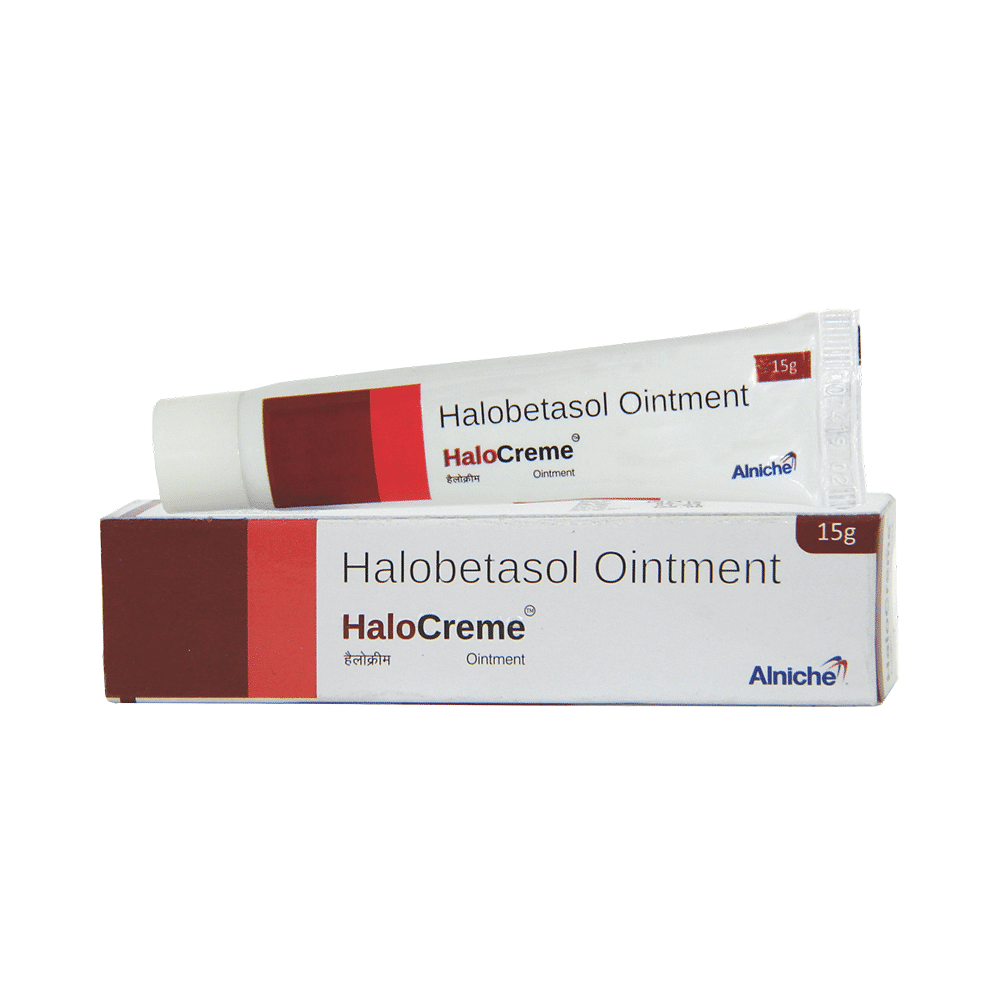
Ultravex Ointment
Manufacturer
Dr Reddy's Laboratories Ltd
Salt Composition
Halobetasol (0.05% w/w)
Key Information
Short Description
Ultravex Ointment is a steroid used for the treatment of allergic disorders and inflammatory skin conditions, providing relief from swelling, redness, and itching.
Dosage Form
Ointment
Introduction
Ultravex Ointment is only meant for external use and should be used as advised by your doctor. You should normally wash and dry the affected area before applying a thin layer of the medicine evenly on the affected skin. Use it regularly to get the maximum from it. Avoid any contact with your eyes, nose, or mouth. Rinse it off with plenty of water in case of accidental contact. Avoid covering the treated area with airtight dressings such as bandages unless directed by a doctor. This medicine may cause burning, irritation, itching, and redness at the site of application. These side effects are temporary and usually go away with time. However, if they persist or worsen, let your doctor know. Pregnant and breastfeeding mothers should consult their doctors before using this medicine. It is not recommended for children under 12 years of age.
Directions for Use
This medicine is for external use only. Use it in the dose and duration as advised by your doctor. Check the label for directions before use. Clean and dry the affected area and gently massage the ointment.
Safety Information
Side Effects
No common side effects listed
Alcohol Warning
No interaction found/established
Breastfeeding Warning
Ultravex Ointment is probably safe to use during breastfeeding. Limited human data suggests that the drug does not represent any significant risk to the baby.
Pregnancy Warning
Ultravex Ointment may be unsafe to use during pregnancy. Although there are limited studies in humans, animal studies have shown harmful effects on the developing baby. Your doctor will weigh the benefits and any potential risks before prescribing it to you. Please consult your doctor.
Interacting Medicines
Acarbose Amlodipine Aprepitant Atazanavir
How it works
Ultravex Ointment is a steroid. It works by blocking the production of certain chemical messengers (prostaglandins) that make the skin red, swollen, and itchy.
Quick Tips
Use it regularly to get the maximum from it Avoid any contact with your eyes, nose, or mouth Rinse it off with plenty of water in case of accidental contact Avoid covering the treated area with airtight dressings such as bandages unless directed by a doctor
Related Medicines

Habiccor Ointment

Halox Ointment

Habiccor Ointment

Halovate Ointment

Halogem-P Ointment

Halogud 0.05% Ointment

Habbicor 0.05% Ointment

Haloderm Ointment

Halocreme Ointment

Haloderm Ointment


